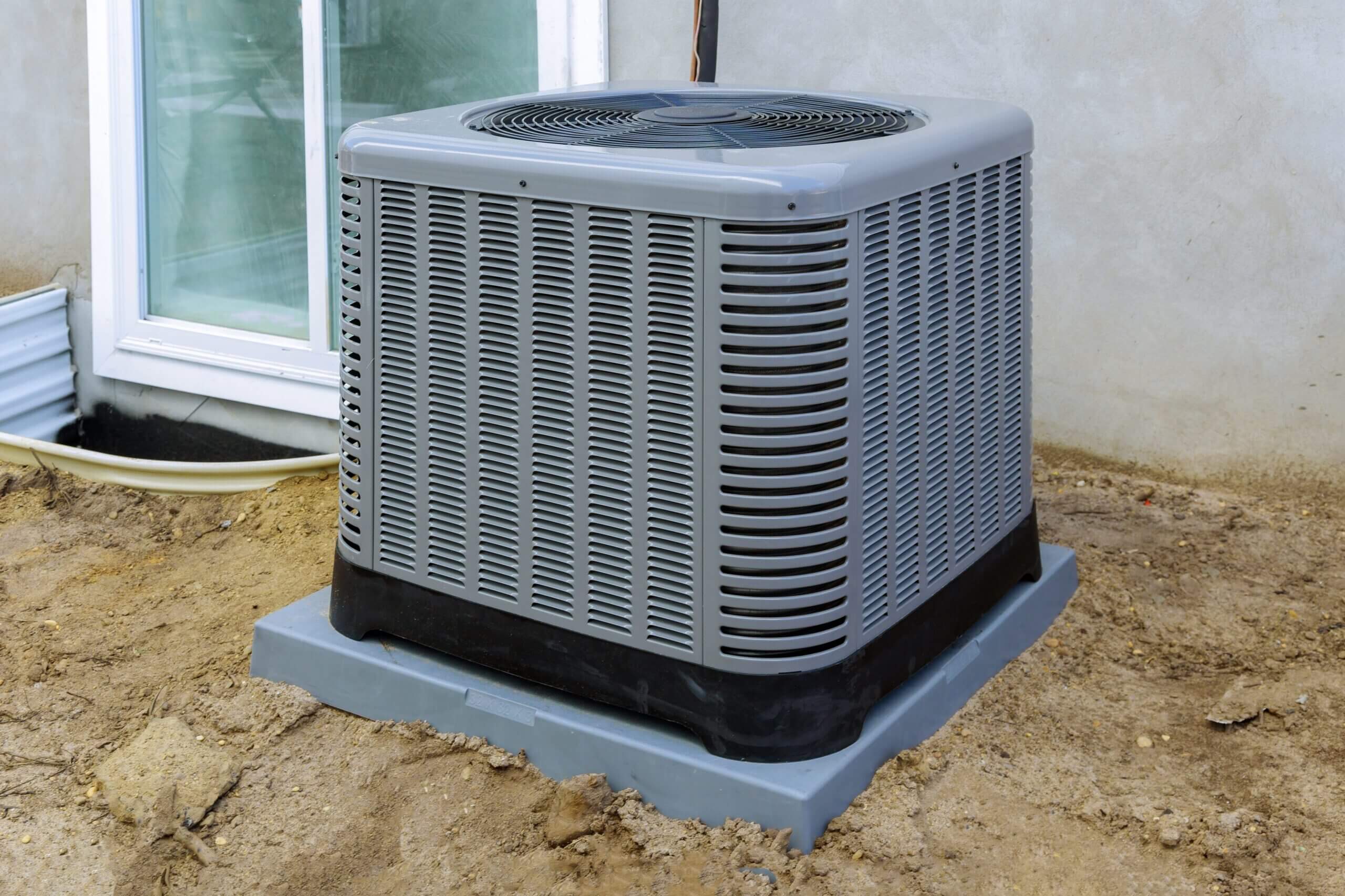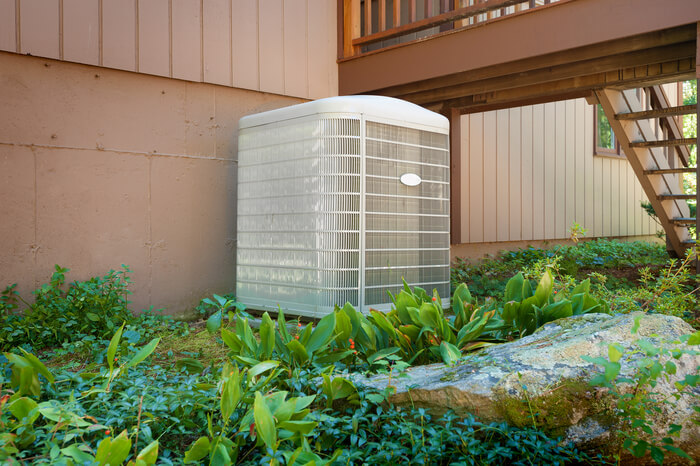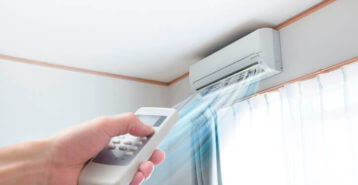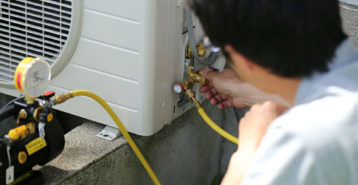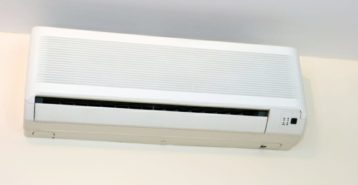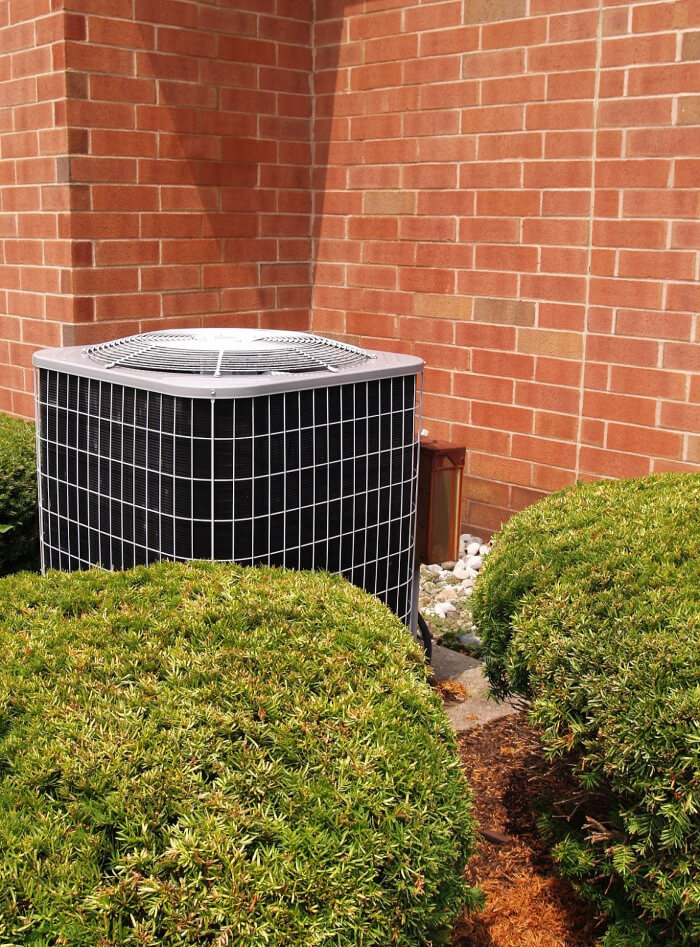How Long Do Air Conditioning Units Last?
On average, air conditioners can last between one and two decades, while most will work well for 15 to 20 years. Of course that’s a broad range and there are many variables that influence this timeline including:
- Unit type
- When the unit was built (pre 2010 models aren’t as good as newer models)
- The unit’s energy efficiency
- How well it was installed
- Your local climate
- How well the unit has been maintained
- How often the system runs
Average Air Conditioner Lifespan by Type
Here’s how long different types of air conditioners typically last:
Central AC Systems
- Lifespan: 12 to 17 years
- Details: Most homes with ductwork use what’s known as central air. These units are more durable than portable models but need regular filter changes, duct inspections, and professional servicing to reach their full lifespan. They’re also the most expensive upfront.
Ductless Mini-Splits
- Lifespan: 15 to 20 years
- Details: Mini-splits are smaller than central AC units and they’re often more efficient and longer-lasting because they lose less air through ductwork. This style is best for homes that don’t have ductwork, or in rooms that need targeted cooling.
Heat Pump AC Systems
- Lifespan: 10–15 years or longer in moderate climates
- Details: Heat pump AC systems provide both heating and cooling to your home. Their dual function means they typically run more often than standard units, which typically causes them to wear out faster.
Window Units
- Lifespan: 8 to 12 years
- Details: Inexpensive and easy to install, window units are a budget-friendly option for targeted cooling, however they’re more prone to wear. You can extend the life of your window unit by regularly cleaning their filters and storing them properly during off-season months.
Portable Air Conditioners
- Lifespan: 5 to 10 years
- Details: The least durable type of air conditioner, portable air conditioning units tend to break down faster due to their more fragile components and repeated exposure to moisture.
Evaporative Coolers or Swamp Coolers
- Lifespan: 10 to 15 years
- Details: Evaporative coolers, also known as swamp coolers, are ideal for dry climates. These units use water and air flow to cool your home, and their lifespan depends heavily on maintenance of mineral buildup and water quality through routine cleaning.
Whole House Fans
- Lifespan: 15–25 years
- Details: While they’re not technically air conditioning, whole house fans are often used as a cooling supplement. Their lifespan is longer than traditional air conditioning as these systems require just motor inspections and fan cleaning.
Older Models
Older systems, especially those built before 2010, use something known as an R-22 refrigerant. These older units tend to wear out faster and cost more to repair. These days, newer energy-efficient models typically come with improved components, better warranties, and longer lifespans when properly maintained.
Factors That Affect Air Conditioner Lifespan
A number of conditions can shorten or extend the life of your AC system:
Location and Climate: The hotter the climate where you live, the more your AC will have to run to maintain proper temperature. This, coupled with high humidity can strain your system’s components and shorten its lifespan. In addition, areas or homes with dusty or polluted air can more quickly clog your unit’s filters and reduce the system’s efficiency.
Usage Patterns: If you run your AC unit constantly, it will wear out faster, especially the older the unit gets and if it was designed before 2010. Oversized systems will also cycle on and off more frequently than smaller systems, which can create added wear and tear.
Maintenance Quality: Maintaining your system is key to reaching its full lifespan. You can do this by cleaning dirty filters, coil and ductwork. Have your system inspected annually to address any problems as well.
AC Size: Choosing the right AC unit for your space is key to ensuring the unit doesn’t work too hard to cool your room down. Systems that are too small for the space will have to work over time to reach and maintain temperatures, diminishing their lifespan. On the other hand, systems that are too large will cool a room quickly but may not work as efficiently as a unit that’s been properly sized.
Brand and Model: There is something to be said for brand quality when it comes to AC units. Premium AC brands will typically offer longer-lasting unis that are better built. Be sure to look for brands and models that have been Energy Star-rated, meaning they fit certain efficiency standards and come with better warranties.
Signs It’s Time to Replace Your Air Conditioner
There are plenty of signs that your current AC unit is nearing the end of its life. In some cases, these symptoms signal a problem that can be repaired. Be sure to ask a professional for the best opinion.
- Weak airflow or failure to keep up with cooling demands can signal a dying unit.
- Loud noises such as grinding, rattling, or screeching often mean parts are failing.
- Frequent repairs or refrigerant leaks could show that despite regular maintenance, your unit is ultimately about to die.
- Strange smells or musty odors in the air are common with dying units.
- Rising energy bills without any increase in usage demonstrate your system is having to work harder but less efficiently.
- Dust buildup or poor indoor air quality could be the result of an AC unit that is dying.
- Advanced age of 15 to 30 years is often a solid indicator that the unit will soon cease to function.
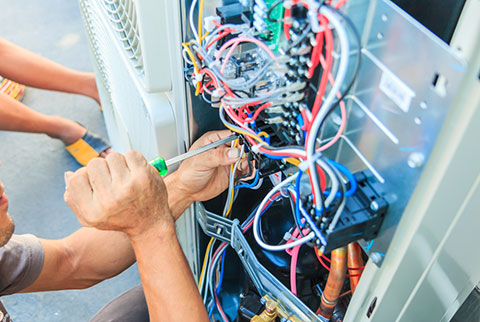
How to Increase AC Lifespan
With regular maintenance and care, you can add years to your system’s life. Here’s how:
- Replace Air Filters Regularly: Most filters should be changed every 1 to 3 months. Doing so helps your system to run efficiently without breaking down prematurely.
- Inspect and Clean Outdoor Units: Remove leaves, grass, and debris from around the condenser, then gently rinse coils with a hose. You can also call a professional for regular deep cleaning of your unit.
- Clean the Thermostat: Dust buildup can interfere with readings and efficiency, especially for older thermostats or analog models.
- Schedule Annual Maintenance: Professionals can clean coils, check refrigerant levels, inspect motors, look at wiring, and catch small issues before they become big problems.
- Use a Programmable Thermostat: Reduces wear on your system by minimizing unnecessary run time. Aftermarket thermostats can easily sync with your existing system for smart home automation as well.
- Shade Your Outdoor Unit: By reducing direct sun exposure, you can help your system operate more efficiently.
So, How Long Do Air Conditioning Units Really Last?
For most households, air conditioner units of any type will last between 10 and 20 years. You can get a longer life from your unit with proper sizing, consistent maintenance, and smart usage. Whether you’re cooling a small apartment or a large home, investing in regular care of your unit today can help you to avoid major repair bills – or the cost of a new unit – down the road.
Compare top-rated HVAC pros in your area.
Read real homeowner reviews, explore qualifications, and view promotions. Modernize makes it easy to browse professionals and find one that will be perfect for your project.
